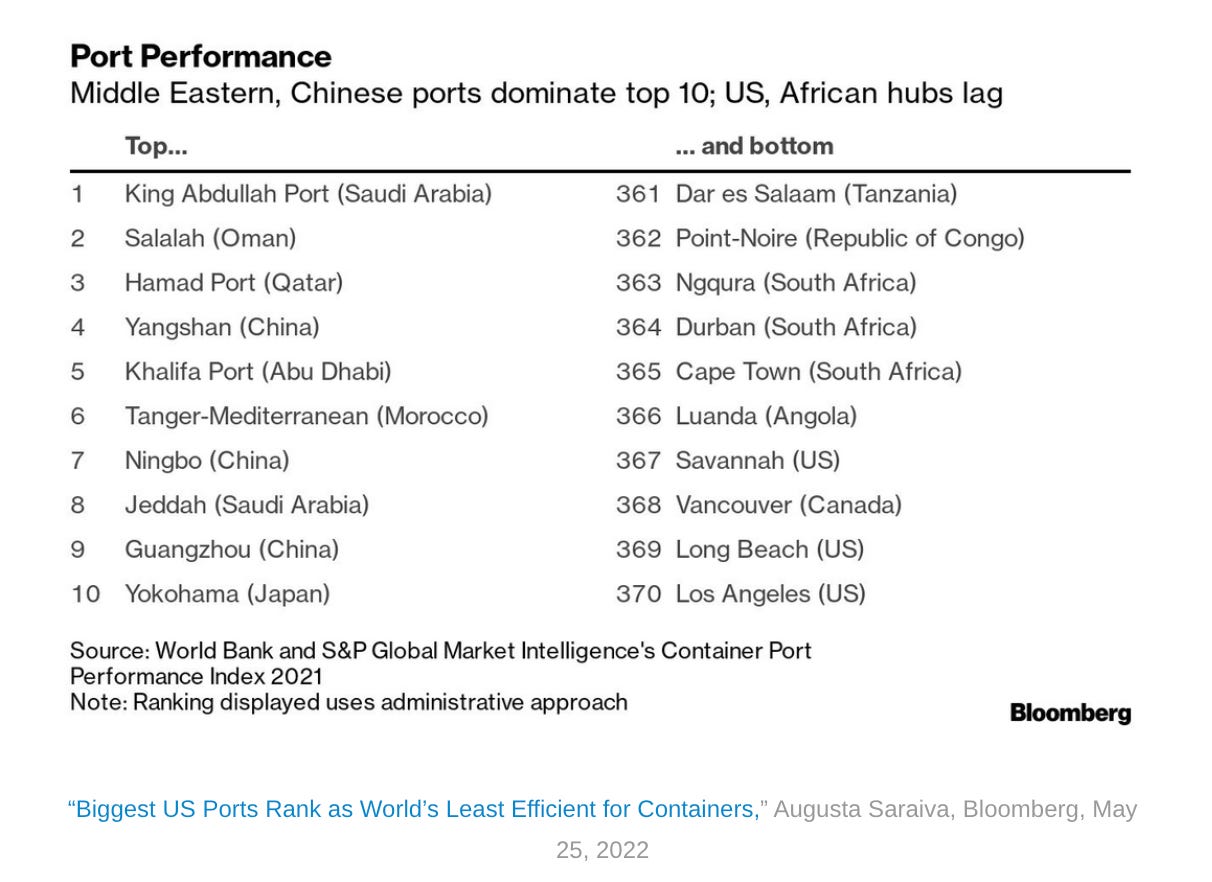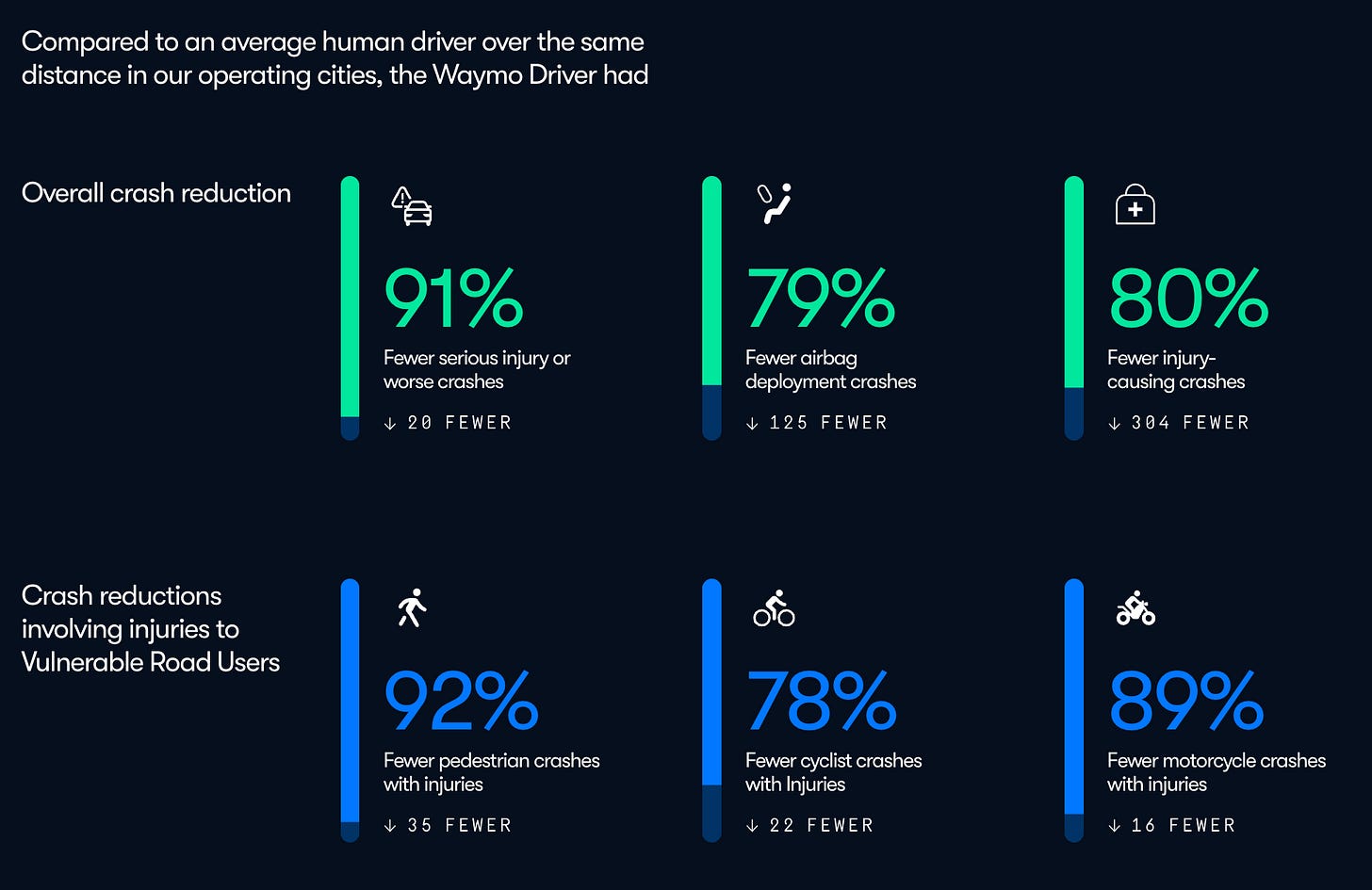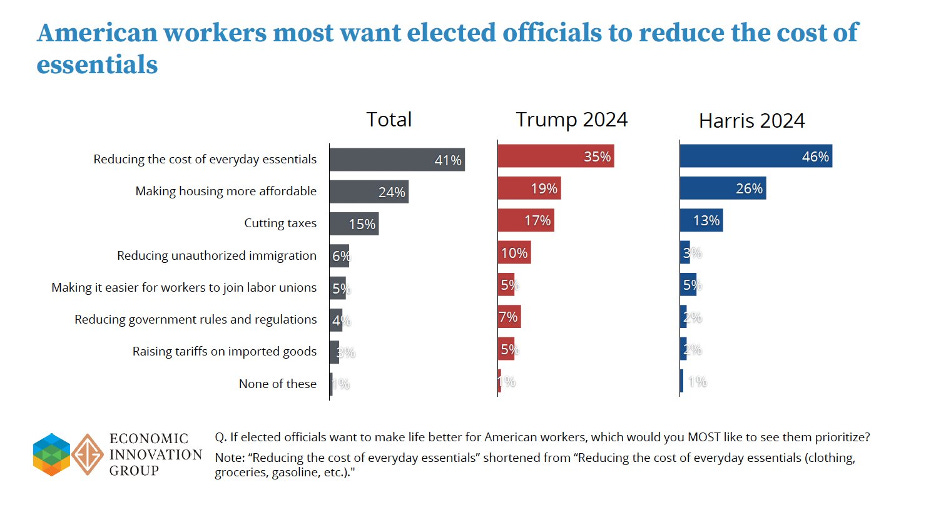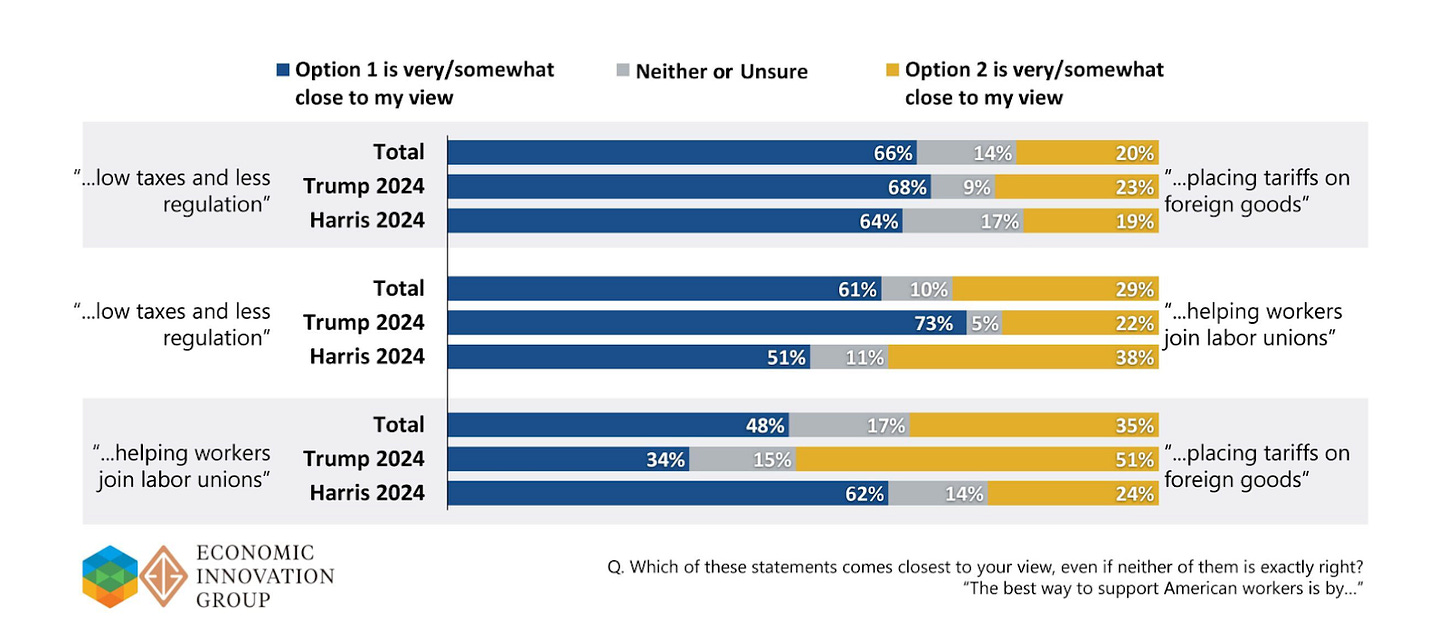Democrats Should Adopt a Case-by-Case Approach to Unions
Unions’ interests sometimes align with the public’s. When they do, Democrats should support and work with them. Unions’ demands sometimes run counter to the public interest. When they do so, Democrats should politely ignore those demands. An easy litmus test for deciding which is which is to ask, “Will this raise prices or reduce the quality of services for the public?” If the answer is no —or better still if the proposal lowers prices or improves services— Democrats should feel free to support that proposal and the union enthusiastically. But if the answer is yes, then the response must be clear: the public interest comes first.
When Unions are Right
Sometimes what unions ask for is good public policy. The North American Buildings Trade Union administers and supports a vast array of apprenticeship and jobs training programs. This is a win all around: Young people entering the workforce get skills, businesses get their workers of the future, and the economy and the country grow stronger. By all means, Democrats should support these efforts!

Another example came when the head of the flight attendant’s union criticized the Biden administration’s FTC for counterproductively blocking a merger between JetBlue and Spirit. The decision undermined competition. Note that the FTC blocking this merger had massively negative consequences. It curtailed JetBlue’s ability to compete with the larger airlines, and pushed Spirit into a financial nosedive; the company filed for bankruptcy in November 2024. This meant job losses for pilots and flight attendants and fewer options for travelers.
Relatedly, when unions are part of a pro-building, pro-growth coalition they can be excellent allies. One example of this was the construction unions during the emergency reconstruction of I-95 in Philadelphia. Their cooperation with Governor Shapiro was essential to getting the highway rebuilt in just 12 days.
Finally, unions often represent workers who provide essential public services. Our communities simply could not function without our police, teachers, firefighters, and nurses. While officials need not accept every contract demand, the default posture toward these workers should be gratitude and goodwill.
When Unions Interests Run Counter to the Publics
That’s the good side, and if only that side sounded counted, an unsophisticated approach to unions might make sense. But it doesn’t. An example of when Democrats should pump the brakes on supporting unions came last year when the longshoremen’s union boss Harold Daggett threatened to crash the economy saying “I will cripple you,” if his demands weren’t met.
This was extortion plain and simple. Those demands included a de facto ban on automating ports. Our ports are already the least efficient ports in the world.

Refusing to automate these ports amounts to a tax on every other American worker for the benefit of this tiny slice of politically connected rent-seekers. There’s a word for this. That word is cronyism.
Similarly, unions in Boston have lobbied for requiring autonomous vehicles to have a driver. So the driverless cars that are currently operating in places San Francisco, Phoenix, and Austin would be essentially banned from Boston. It is very much worth pointing out that autonomous vehicles are now far safer than human drivers.

In fact, by one estimate, if we were able to replace human driving with AVs right now, we would save 34,000 lives per year. Make no mistake about it: if unions in Boston get their way in banning AVs there **people will die** as a result. This is a clear case of when a union should be ignored.
Unions also sometimes lobby for higher taxes on imports that directly raise prices for Americans. For example, during the first Trump administration, the AFL-CIO supported Trump’s steel and aluminum tariffs that cost American families between 194 and 380 dollars a year. The second Trump administration’s new larger tariffs, also backed by union leaders like Shawn Fain, are set to cost American families $3,800 this year. That’s a lot of money. Democrats should not support unions when they call for adding those kinds of costs on ordinary Americans. It’s worth also noting that because these tariffs raise input costs and increase uncertainty for businesses they kill more jobs than they protect; manufacturing employment is down by 78,000 jobs this year so union-backed tariffs fail even on their own terms.
Deference to Unions is Not the Way to Win Back the Working Class
Given this mix, the logical approach is simple: support unions when their goals align with the public interest, ignore them when they don’t. Alas, President Biden adopted a different strategy, thinking that if he went all-out for unions, he’d perform well with working-class voters. So, in his first year in office, Biden directed $36 billion of taxpayer money to the Central States Pension fund which prevented cuts to the pensions of 350,000 union members. His National Labor Relations Board (NLRB) boosted union campaigns. He even joined striking workers on a picket line, something no president had ever done before.
And all of this got him nothing politically. Democrats lost non-college voters by a higher margin in 2024 than they did in 2020 or 2016. It is actually not that difficult to explain why it got him nothing. First, even those workers who are union members almost always vote the way they do for reasons other than union-related policy items like the PRO Act. Also, most workers are not union members. In fact, 94% of private sector workers do not belong to a union. And most workers do not prioritize pro-union policies; they are far more interested in policymakers working to bring down the cost of living than in making it easier to join labor unions. For what it’s worth, Republicans should note that workers also don’t especially prioritize reducing illegal immigration or raising tariffs in comparison to the cost-of-living either.

Furthermore, when EIG asked whether they thought the best way to help workers was “low taxes and less regulation” or “making it easier to join a union”, 61% of poll respondents chose low taxes and less regulation while only 29% chose the union option.

In short, it is important for Democrats to be pro-worker, but it is a mistake to believe, as Joe Biden did, that being sycophantically pro-union is some kind of skeleton key for appealing to the working class. It is not. We as a party cannot go left on culture, go left on economics, and then think we can make up for that with showy deference to unions. Last year’s election shows, quite definitively, that it doesn’t work that way. Instead, as I’ve argued before, appealing to working-class voters will require Democrats to moderate on culture, adopt working-class friendly positions on energy and resource extraction industries, and above all focus on the cost of living.
-GW



The stickiest case, to my mind, is reforming civil service rules to make it easier for governments at all levels to hire high performers and fire low performers. As Jen Pahlka and others have documented, this is an important foundation for building state capacity and delivering high quality public services that earn public trust. But it also is in strong tension with the short term interests of some of the unions that are most powerful within the Democratic party.
How do we resolve this? Is there a way to get public sector unions on the side of state capacity through high performance? Or do we have to face the unpalatable choice of throwing core constituents under the bus or accepting worse governance outcomes, especially in deep blue states and cities?
Republicans offered an array of proposals that were certain to raise costs. They lured *some* of "the working class" with bigotry to paper over what should have been obvious to thinking people: their proposals ran contrary to public interests.
Dems need to stop taking advice from lite republicans.